USS Bass V-2 / SS-64 (1/2)
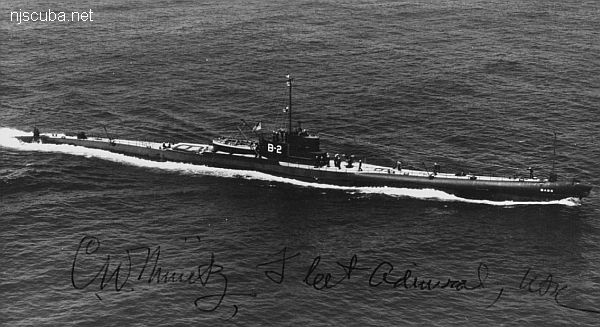
- Type:
- shipwreck, submarine, U.S. Navy
- Built:
- 1924, Portsmouth Navy Yard, NH USA
- Specs:
- ( 341 x 28 ft ) 2000 displacement tons, no crew
- Sunk:
- Monday March 12, 1945
deliberate - weapons test - Depth:
- 155 ft - sand ; 140 ft - deck ; 120 ft - conning tower
The Bass was an unsuccessful design. Her three-ship class was envisioned as a long-range, long-endurance attack craft, designed to patrol in distant waters, and sported a number of very advanced features for their day. However, many of these features did not work as well as hoped, and the boats were plagued with mechanical difficulties, unreliable propulsion systems, and poor handling characteristics, both at the surface and submerged.
The Bass and her two sisters were huge - 340 ft, 2000 tons - over twice the size of most contemporary boats. For some idea of her size, the Bass dwarfs the nearby U-853 of almost twenty years later - 251 ft, 1051 tons. In fact, the U-853 would probably fit inside the Bass. The Gato class submarines that were the WWII workhorses of the US Navy in the Pacific were actually smaller than the Bass, at 311 ft, 1816 tons. Even the modern Los Angeles class nuclear attack submarines, largest of their type, are only some 20 ft longer, although considerably heavier.
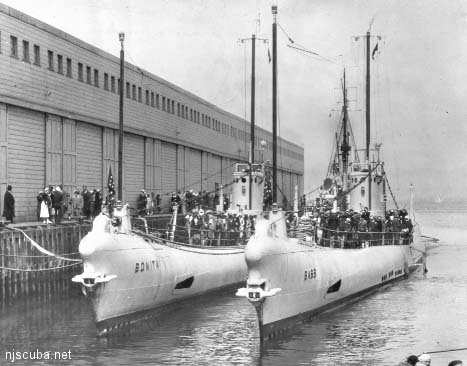
Because of her shortcomings, the Bass was forced into early retirement less than 15 years old but called out again for wartime service in 1940. Her duties were mostly patrol and training, and she never saw combat. After a devastating internal fire, she was converted to cargo duties and was eventually used as a test target, a fate similar to several previous submarines.
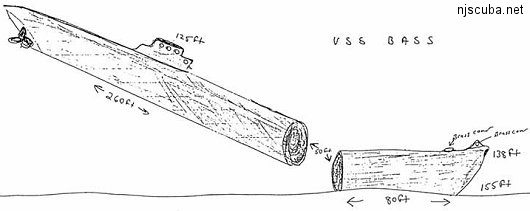
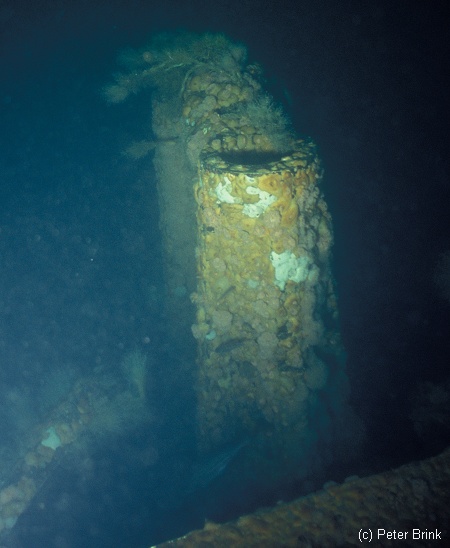
Today the Bass lies in two pieces. The forward third of the hull broke off during sinking, and lies about 50 ft south of the main wreckage, skewed off at an angle and listing 45 degrees to port. There is usually a rope between the two pieces. The break occurred just forward of an internal bulkhead, so the bow section is wide open for penetration. The forward diving planes are not evident, but the torpedo doors are large and obvious. The anchor bit in the bow is of an odd shape that gave the boat a distinctive forward profile and is worth a look.
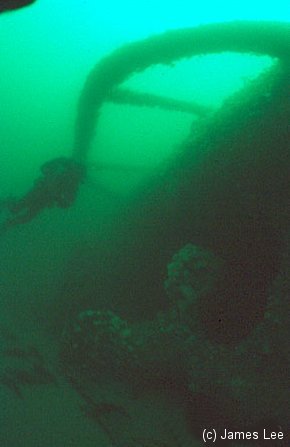
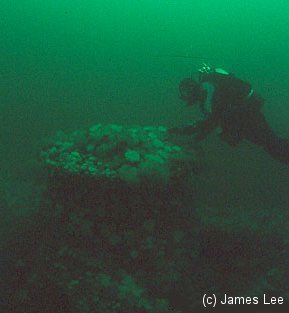
The upright aft section, with the conning tower intact, is more interesting. Penetration of the hull at the break is possible through the hatches in the bulkhead. Penetration of the conning tower is also possible. Most of the decking has rusted away, revealing a maze of pipes below, and the cylindrical pressure hull beneath. Swimming back to the stern, you will find the most interesting area of the wreck. The dual propellers lie half-buried in the sand, with the aft diving planes just behind, set permanently at a hard down angle. Above these are the large frames that guarded against entanglement, and behind and mostly buried is the rudder.
Large schools of Ling swarm over the bottom around the wreck. Higher up, cunners are dominant. Owing to the depth, this is usually a dark dive, with little ambient light.
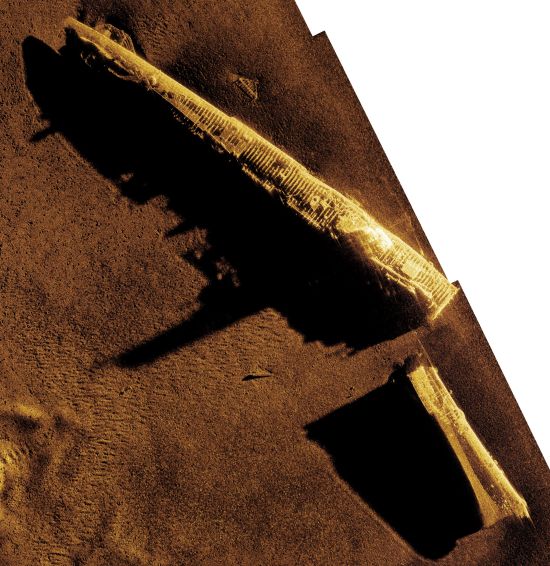
Underwater photographs courtesy of James Lee / DeepScape.com.

Questions or Inquiries?
Just want to say Hello? Sign the .